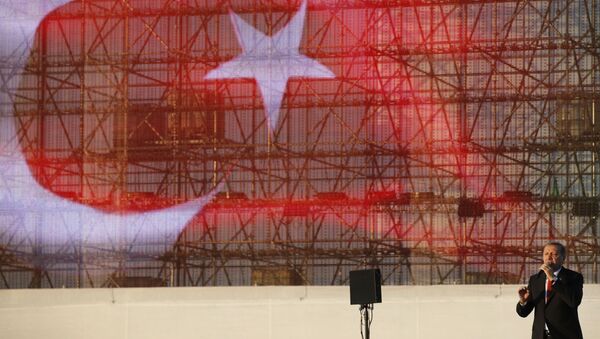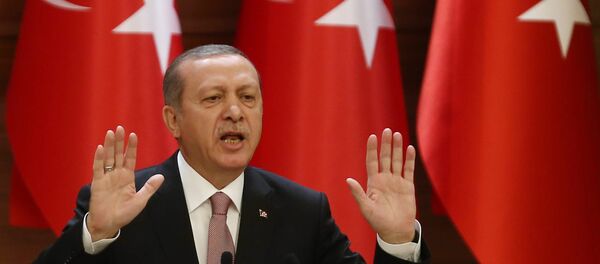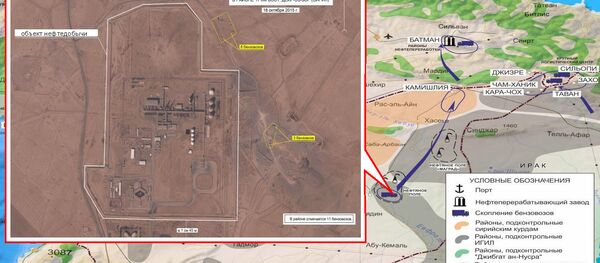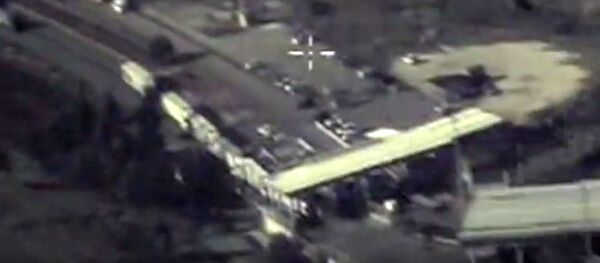Ankara’s murky relationship with Jihadists came to light after a Russian bomber was downed by a Turkish jet in Syria in late-November.
One of the burning questions is which opposition forces to support in Syria. Turkey and its allies support different groups.
Some US senior officials have recently criticized Turkey for having ties with radical Islamists. For instance, Vice President Joseph Biden said that the Turks support "anyone who would fight against Assad," including militants of the al-Nusra Front as well as other extremist groups.
"Despite these statements, radicals in Syria have regularly received military supplies from Saudi Arabia and Qatar via Turkey, with the full knowledge of the CIA," the analyst noted.
Currently, Turkey is at odds with three of Daesh’s rivals: the Kurds, Shiite Arabs, and the government of Bashar Assad. Since the beginning of the Arab Spring in 2011, Ankara has done everything in its power to topple Assad. The Kurdish Democratic Union Party – which has fought Daesh militants near the cities of Kobane and Haseke for months – is the Syrian branch of the Kurdish Worker’s Party against which Turkey has waged its own war for 30 years. What is more, Ankara is not happy to see a Shiite government in Iraq and has misgivings about Iran’s growing influence in southern Iraq, the article read.
"Turkey and ISIL now share regional enemies," Ozkan wrote.
The most outspoken critic of Turkey’s policy toward Daesh is Russian President Vladimir Putin, according to the author. After the Russian bomber was shot down, Putin called the incident "a stab in the back" by those supporting terrorists.
Ozkan underscored that it has been long claimed that Daesh has taken advantage of Iraq and Syria’s "porous borders" as well as the black market created by the ongoing conflicts there to sell its oil to Turkey and other countries in the region.
For instance, in 2014 US State Secretary John Kerry said that Turkey and Lebanon are the main destinations for smuggling oil by Daesh. Turkish press has also made numerous allegations concerning human trafficking and smuggling along Turkey’s border. According to Turkish media, criminal activity takes place with the consent of local security forces who are bribed by terrorists.
In July, pro-Daesh Islamists gathered in central Istanbul to celebrate the end of Ramadan, without any intervention from the police. There have also been claims that wounded Daesh militants have received treatment in Turkish hospitals.
Things turned worse when Daesh began using Turkish citizens to carry out suicide bombings on Turkish soil. In October, two Daesh suicide bombers carried out the deadliest terror attack in Turkish history, killing 102 people. The bombing occurred just a few kilometers from the Turkish parliament.
If the Turkish government takes a tougher stance against Daesh "given the havoc ISIL was able to wreak in Paris, thousands of kilometers away, it could turn neighboring Turkey into a war zone," the article read.
And yet Turkish government keeps on saying that Daesh is a symptom, not the main problem, the analyst wrote.
Turkey’s ruling party has insisted that toppling Assad would facilitate the fight against Daesh. Nevertheless, Ankara’s plan is supported by none of the key regional and global players, including the US and Russia who are focused on destroying the terrorists, not Assad.
"Turkey has no choice but to go along with this strategy, even if – as the sole NATO country to share a border with ISIL [Daesh]- it may have to pay a heavy price indeed. Whatever the future holds for Turkey, there is little doubt that its leadership is anxiously brooding over how to untangle itself from ISIL," the author concluded.





